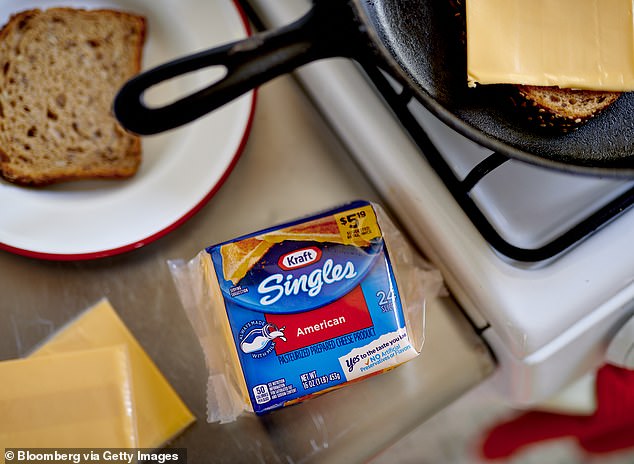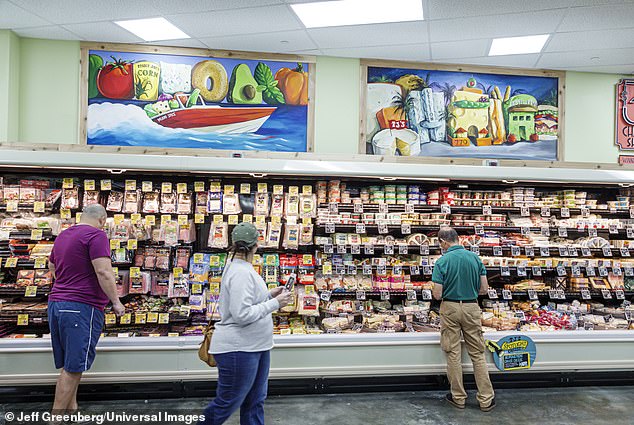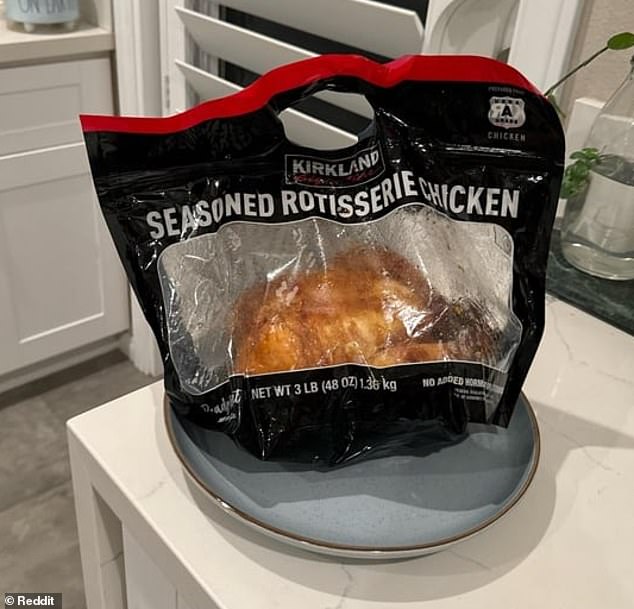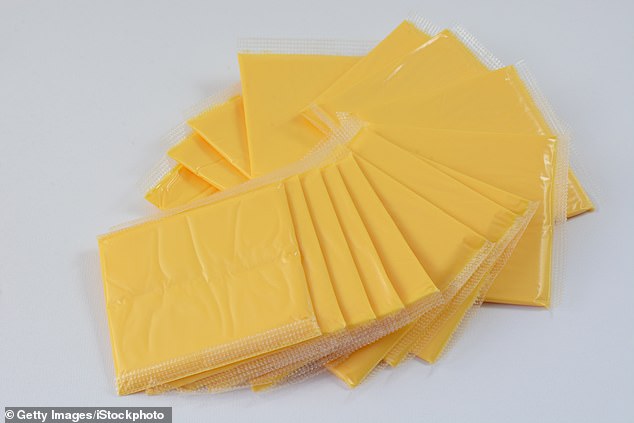Reducing plastic in food packaging is good for the environment, but it can cause problems for shoppers.
Last month, Costco customers were left furious after the traditional hard plastic containers for its $4.99 rotisserie chicken were replaced with soft plastic bags.
Costco said it made the change to reduce plastic use by 75 percent, but it sparked complaints that meat juice was leaking into carts, cars and refrigerators.
Now, new laws are being passed in several states that mean further cuts to plastic packaging, which will change the way Americans buy and store their favorite everyday products.
American cheese that comes in packages where each slice is individually wrapped in plastic would be banned under the new rules.
A New York state law could mean the end of American sliced cheese
Experts say cutting back on plastic in food packaging is not always welcomed by shoppers.
“You can see experiments with it all over the landscape,” said Sandra Goldmark, a sustainability expert at Columbia University’s Climate School. The New York Times.
“At the moment, many of the experiments are not working so well. We have not yet managed to solve the problem.”
She said Costco’s rotisserie chicken that comes in a bag, rather than a hard plastic shell, was an example of a “less bad” change.
‘But the funny thing about the least bad solutions is that they tend to disappoint everyone.
“There is less plastic and fewer trucks on the road, but the chicken is still in a plastic bag and the car is covered in chicken juice.”
A proposed law in New York State aims to reduce plastic packaging by 50 percent over the next 12 years. If they fail to find more environmentally friendly packaging, producers will have to pay a fine.
Four other states (California, Colorado, Oregon and Maine) have implemented similar laws aimed at reducing packaging waste.
An iconic American staple could be affected: individually wrapped slices of cheese, according to a prominent environmentalist who supports the New York bill.
“We have to do something about the plastic crisis,” said Judith Enck, president of the Beyond Plastics group, in an interview with German television. The New York Post.
“There was a time in the United States when you didn’t put a piece of plastic between each slice of cheese. Now you can replace plastic with paper,” he said.
Food manufacturers and supermarkets are resisting these laws.
Nelson Eusebio, a representative of the National Grocery Association, told the Post: ‘With this bill, New Yorkers can look forward to a future where they can grab unwrapped goods, from cereal to cheese to hot dogs, from grocery store bins before purchasing and taking them home.

Kraft Singles is the market leader in U.S. sliced cheese, but the product may need to be sold without individually wrapping each slice in plastic.

American cheese, in which each slice is individually wrapped in plastic, will be under threat with new laws

Costco customers complain that new soft plastic bags for rotisserie chickens allow grease to seep through
‘There is no doubt that such a drastic change in purchasing habits will reduce the flow of packaging waste to our landfills, but it does so at the risk of ignoring all we have gained in food preservation and health benefits from sanitary, airtight plastic packaging.’
He said this would lead to a huge increase in food waste, which in turn would lead to an increase in food prices.
Food waste also has a negative impact on the environment.
It takes CO2 to produce it, transport it, and it also generates emissions when it reaches the landfill.

